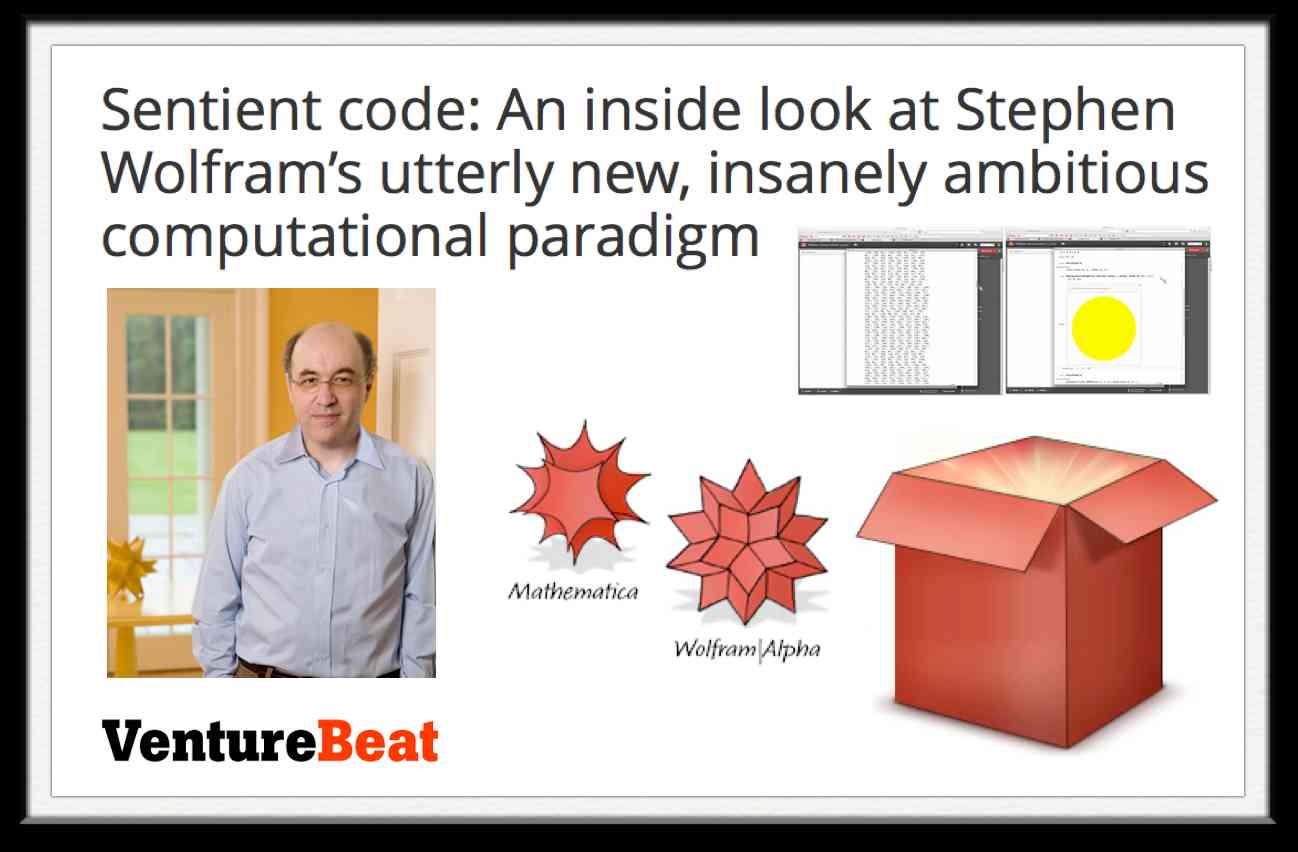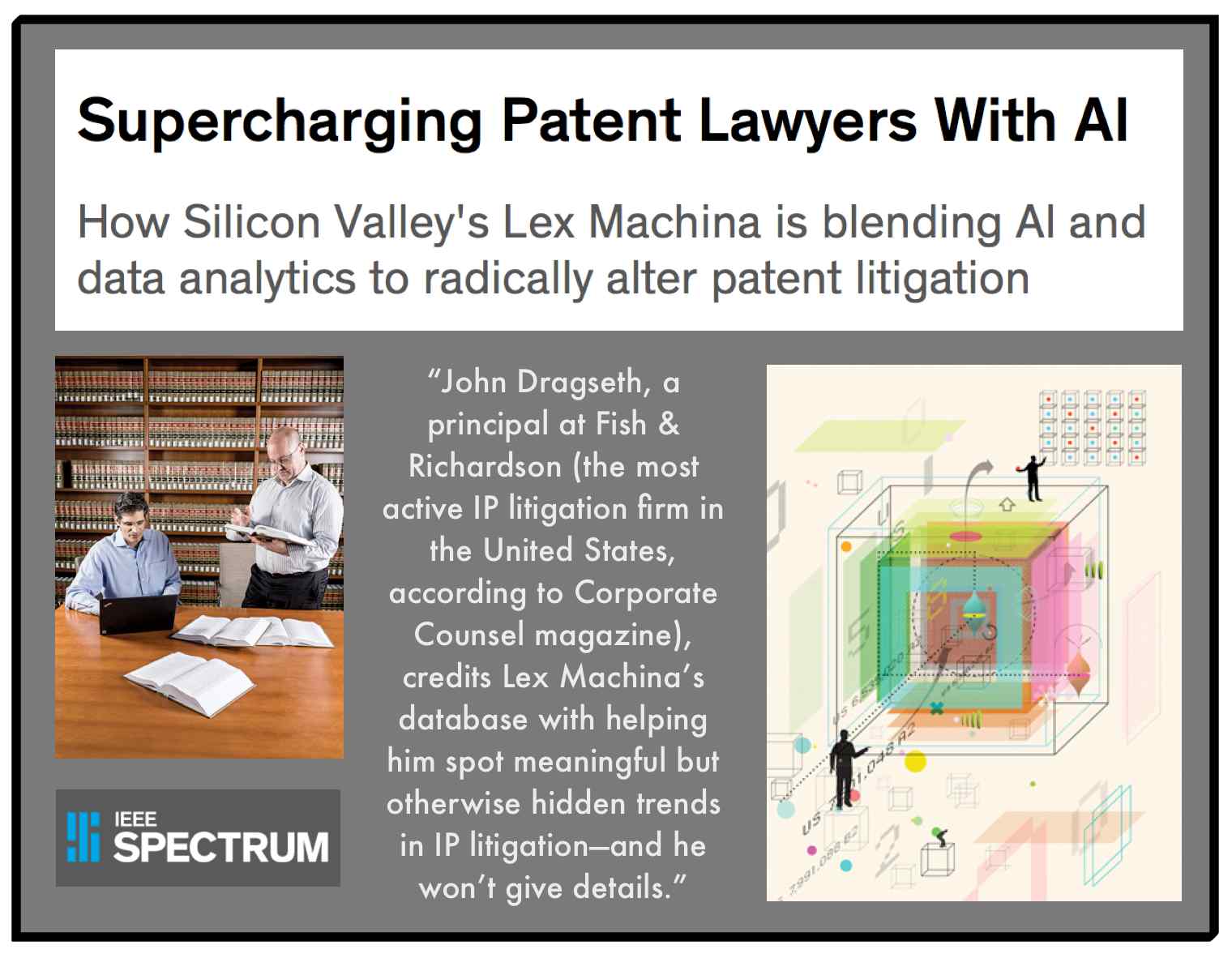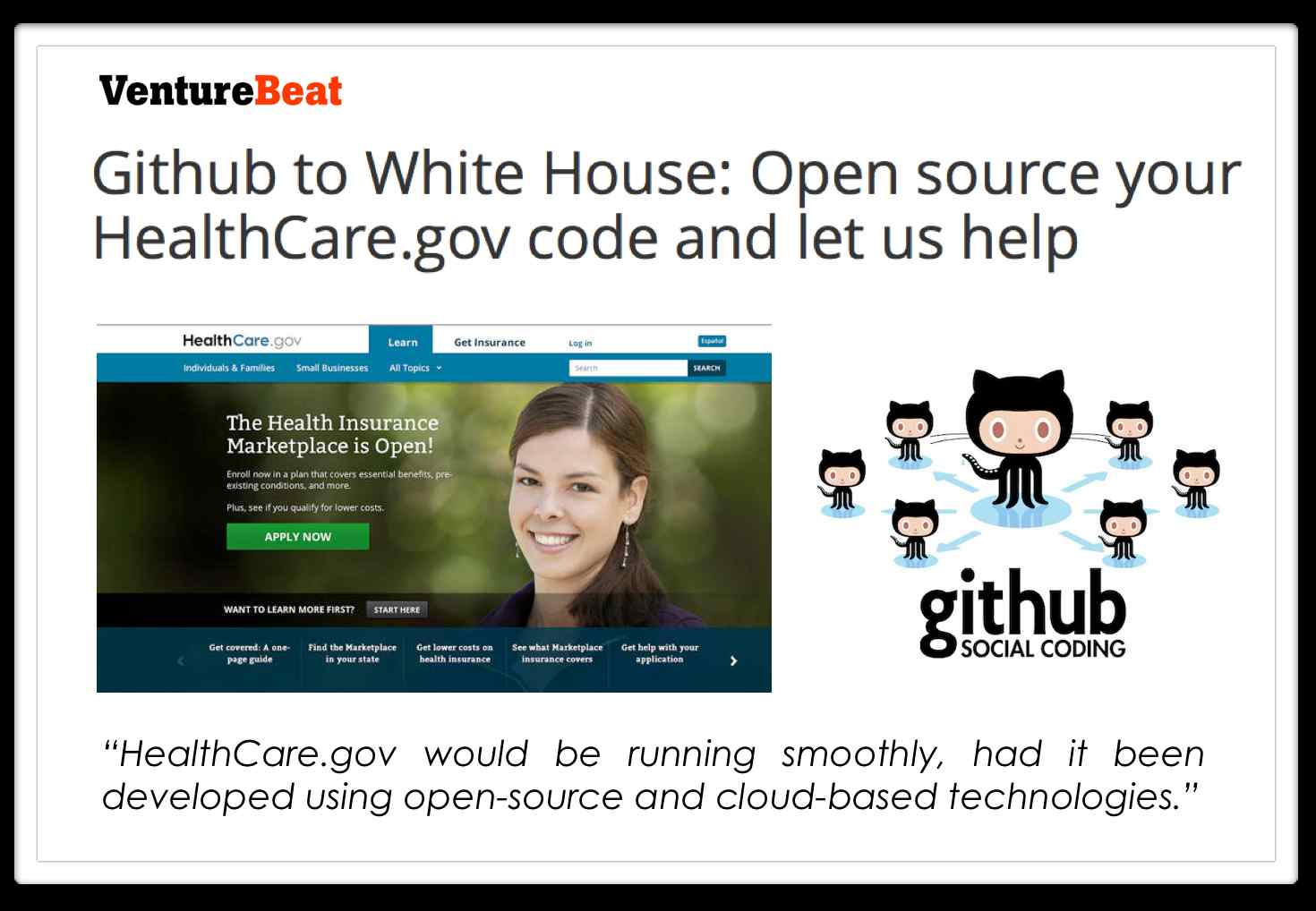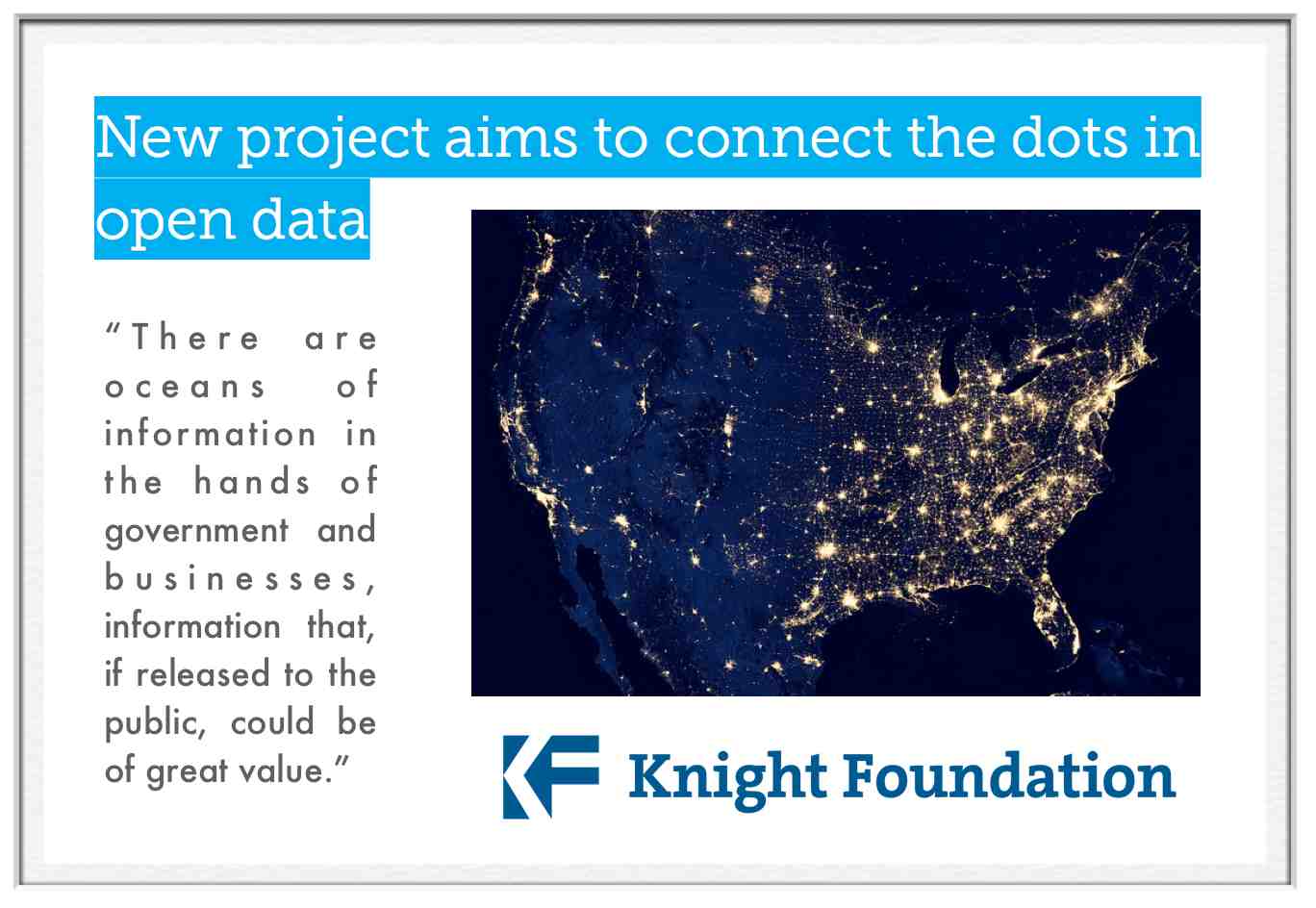Month: November 2013
Supercharging Patent Lawyers With AI (via IEEE Spectrum)
In my recent article, Quantitative Legal Prediction – or – How I Learned to Stop Worrying and Start Preparing for the Data Driven Future of the Legal Services Industry 62 Emory Law Journal 909 (2013), I discuss how companies like Lex Machina are creating a more efficient and data driven legal industry. Next semester at MSU Law, Michael Bommarito and I will co-teach a course called “Legal Analytics.” This is a follow on the introductory course that I teach called “Quantitative Methods for Lawyers.” In Legal Analytics, students will be exposed to cutting edge predictive analytics approaches such as machine learning, natural language processing, network science, etc. Students will apply their skills on real datasets that are available from published papers or from some our industry partners. Thus, the course will mix theory with practical applications useful for the practice of law as we move forward into the 21st Century.
R Boot Camp – Part 2 in Quantitative Methods for Lawyers (Professor Daniel Martin Katz)
Today was Day 2 of our R Boot Camp in Quantitative Methods for Lawyers.
In total, there will be three set of slides in this multi-day bootcamp designed to introduce students to the logic of R, the basic roadblocks such as loading data and cleaning data, loading various R packages, running basic commands, shifting out of default command settings, plotting data, conducting statistical tests, etc. Later in the course we will use R for regression analysis, etc.
For anyone who might be interested, the Full Course Page including all slidedecks is located here. For help on the installation of R and the RStudio IDE please check out my Loading R/RStudio Bonus Module.
Insights from a Legal Design Jam – (Via Margaret Hagan & Stanford d.school)
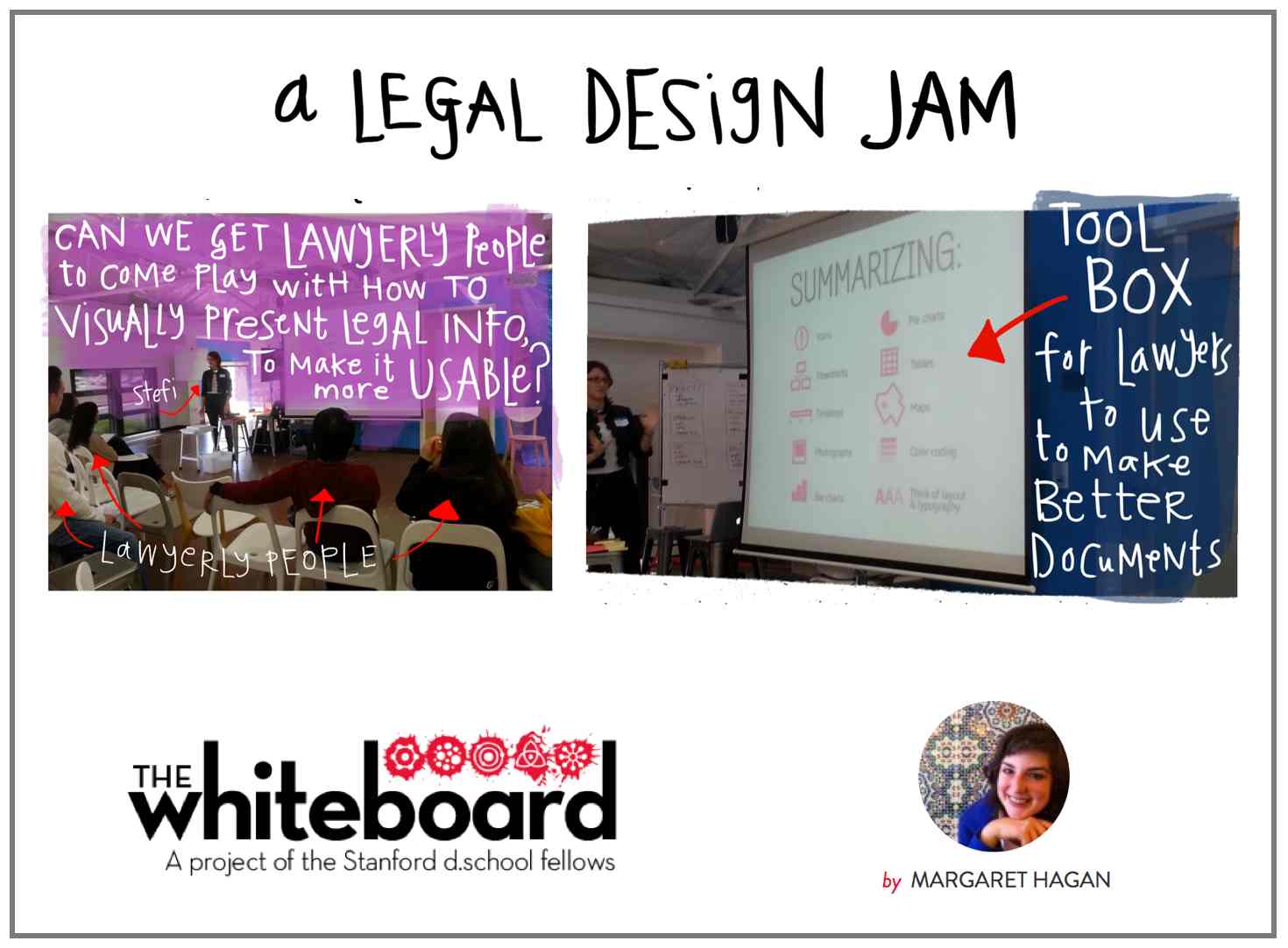 On October 11 (@Stanford d.school) and October 12 (San Francisco) – 2013 Legal Rebel & Stanford d.school fellow Margaret Hagan helped run perhaps the first of what will hopefully be many legal design jams. Here are her five insights from running the event. If you want details about the upcoming events or if you want to host a jam – contact stefania.passera (at) aalto.fi
On October 11 (@Stanford d.school) and October 12 (San Francisco) – 2013 Legal Rebel & Stanford d.school fellow Margaret Hagan helped run perhaps the first of what will hopefully be many legal design jams. Here are her five insights from running the event. If you want details about the upcoming events or if you want to host a jam – contact stefania.passera (at) aalto.fi
The #LegalHack Movement -or- The HomeBrew Computer Club of the Legal Industry
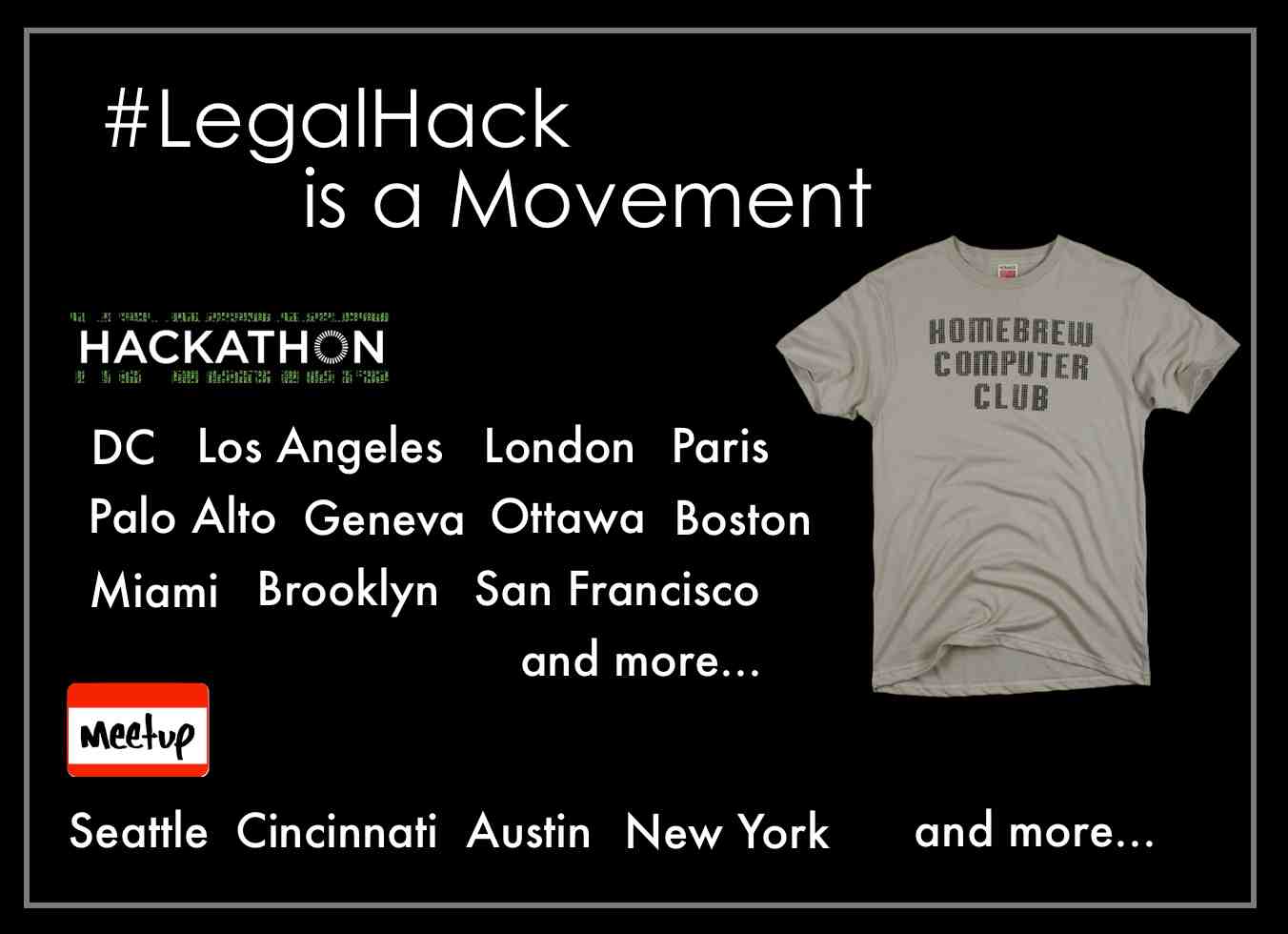
#Legal Hacking is a Movement. This is what Robert Richards from Legal Informatics Blog declared back in 2012. It turned out to be a very accurate prediction. The rise of the legal hack movement is among the most interesting developments in our industry — with significant growth coming in the second half of 2013.
Thousands of individuals in the #LegalHack movement are coming together across the globe to connect, discuss and try solve persistent problems that plague both the legal industry and public sector / judiciary. The past months alone have featured more than 10 events in locations such as Washington, DC, Palo Alto, San Francisco, Bologna, Brasila, London, Geneva, Ottawa, Brooklyn, Paris, etc. RC Richards has been compiling a list here.
Additionally, there are law+technology meetup events taking place in locations such as Seattle, Cincinnati, Austin, Los Angeles, etc.
While certainly not a silver bullet for all problems, technology can potentially help alleviate some of the persistent issues in both the private and public sector including firm efficiency, access to justice, better courts and a better justice system, more effective regulation, perhaps a less dysfunctional congress (well – that might be impossible) …
I should just note for those of you not familiar with this fact – “hacking” has multiple meanings. The context in play here is the positive sense of the word -> developing creative solutions to particular problems that exist in the world (rather than say committing crime using a computer). So the well know site Lifehacker (which helps me all of the time) is devoted to hacking your life in order to make it easier.
For the legal industry, this looks a lot like the HomeBrew Computer Club (circa about 1976)!

